#Wei & Jin Dynasties
Text
Chinese period clothing from different dynasties.
English added by me :)
#douyin#video#tiktok#wei and jin dynasty#tang dynasty#song dynasty#ming dynasty#qing dynasty#hanfu#i feel like i don't see wei or jin that often so that's interesting#qizhuang#拍片夫妇
4K notes
·
View notes
Text
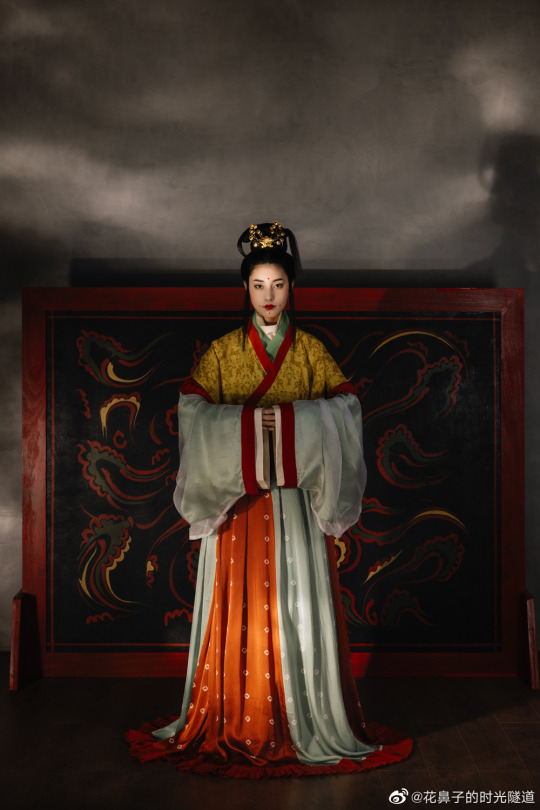
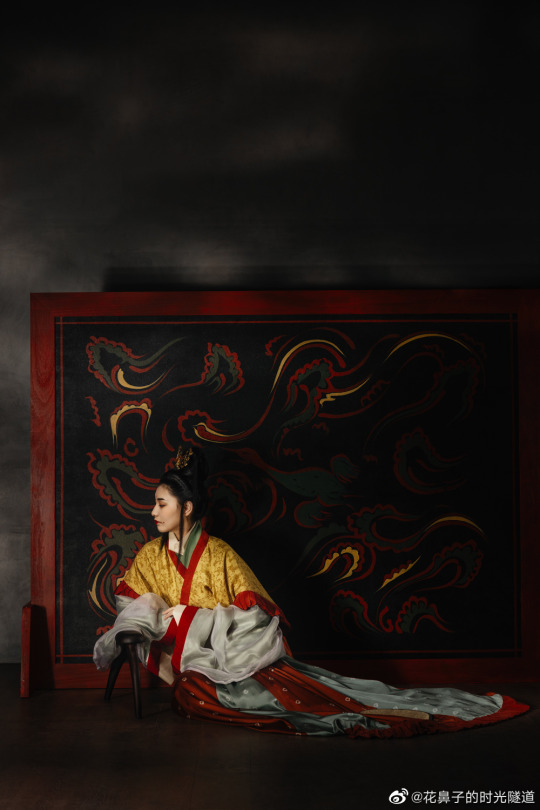

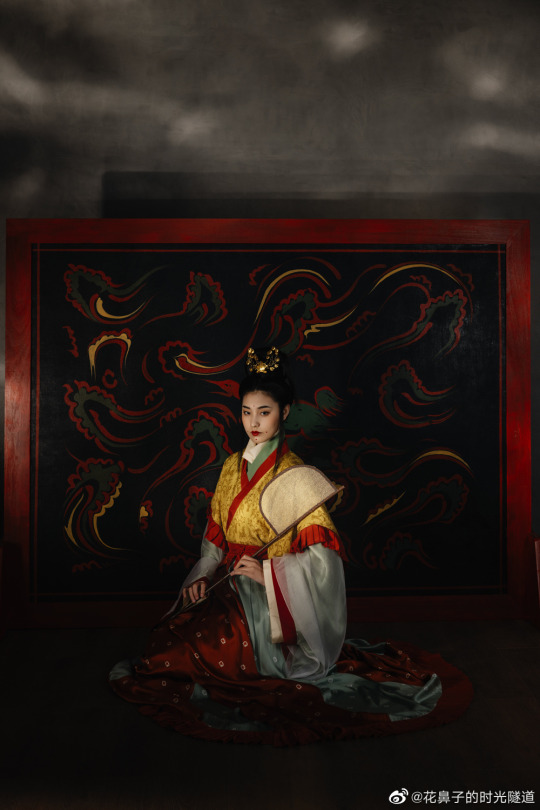

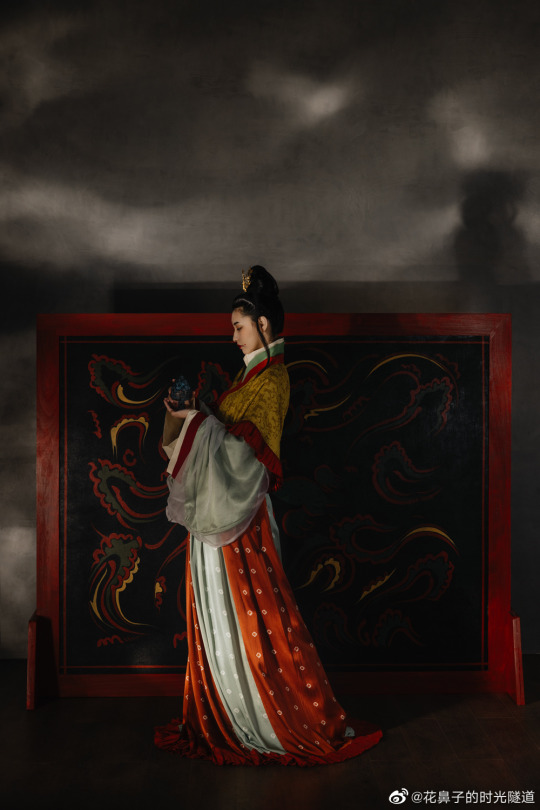
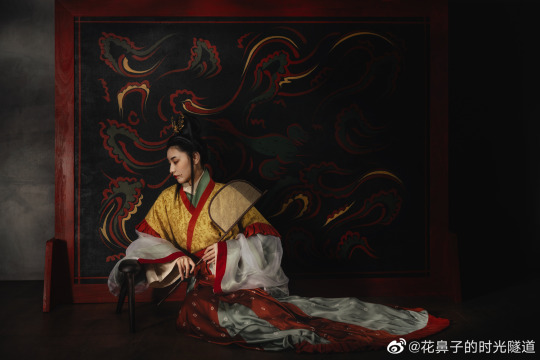

【Historical Reference Artifacts】:
China Jin Dynasty PaintingBy Gu Kaizhi (顾恺之)
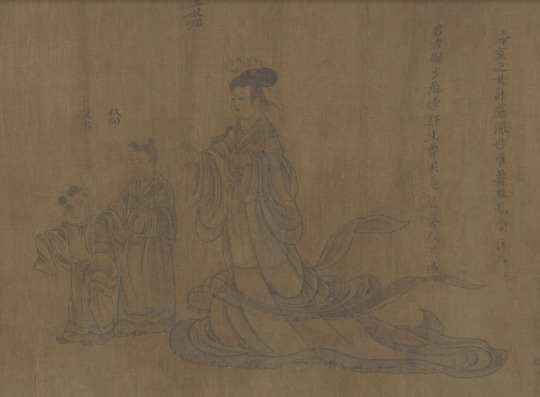
・ Wei, Jin, Southern and Northern Dynasties Female Figurines showing woman makeup at the time:
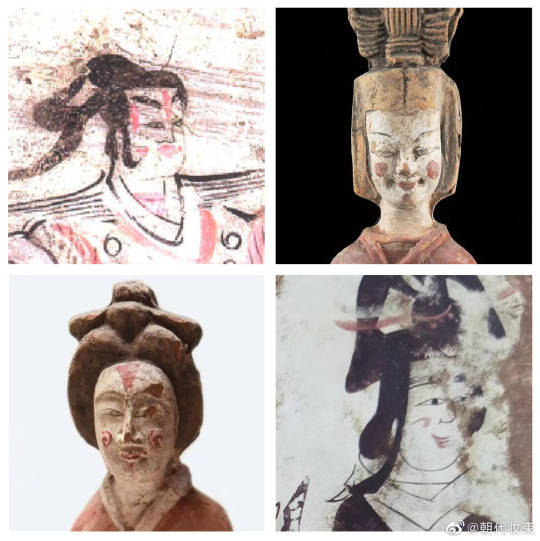

[Hanfu・漢服]Chinese Wei and Jin Dynasty-Northern and Southern Dynasties(220—589)Traditional Clothing Hanfu Photoshoot
————————
📷Photo:@realyn
💄Stylist:@仰望的花鼻子
🔗Weibo:https://weibo.com/5541803701/N77vXcOBE
————————
#chinese hanfu#Wei and Jin Dynasty-Northern and Southern Dynasties(220—589)#hanfu#hanfu accessories#hanfu_challenge#chinese traditional clothing#china#chinese#chinese history'#historical fashion#historical makeup#Wise and Benevolent Women (列女仁智圖)#chinese history#ancient china#chinese fashion#hanfu art#漢服#汉服#chinese style#中華風#魏晋南北朝
226 notes
·
View notes
Text
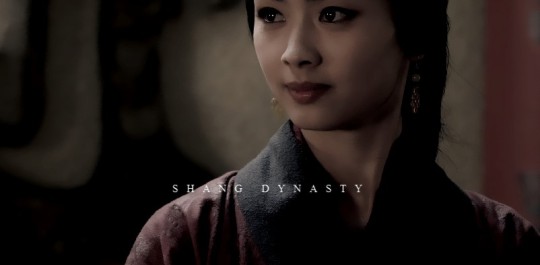
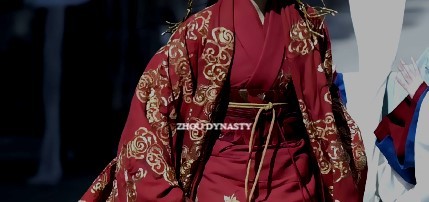
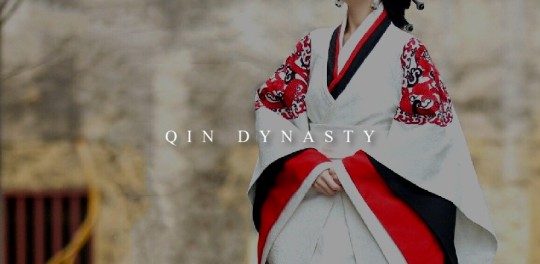

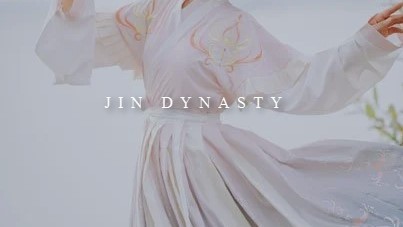

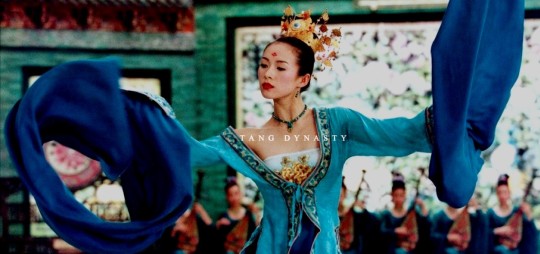


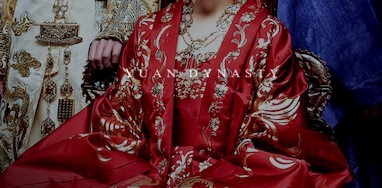
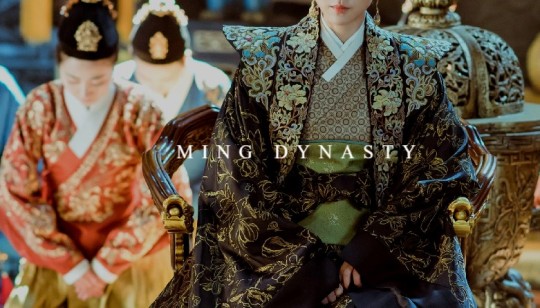
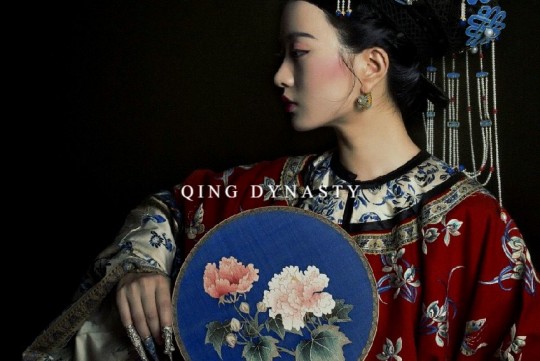
Chinese Dynasties.
Shang | Zhou | Qin | Han | Jin | Sui | Tang | Liao | Song | Yuan | Ming | Qing
#qing dynasty#han dynasty#qin dynasty#shang dynasty#ming dynasty#zhou dynasty#tang dynasty#yuan dynasty#song dynasty#jin dynasty#sui dynasty#liao dynasty#story of yanxi palace#ruyi's royal love in the palace#empress ki#house of the flying daggers#legend of xiao chuo#red cliff#zhao wei#the king's woman#legend of haolan
145 notes
·
View notes
Text
Ugh. Why is it so difficult to find info on men's clothing? 90% of the websites I visit are about women's clothing only. Sometimes with a very small paragraph or two on men's clothing. Ugh. Whyyyyyyy.
#hanfu#chinese history#historical fashion#chinese fashion#sui dynasty#tang dynasty#northern and southern dynasties#wei and jin dynasties#history of hanfu
15 notes
·
View notes
Text
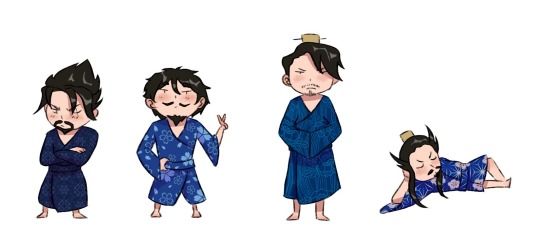
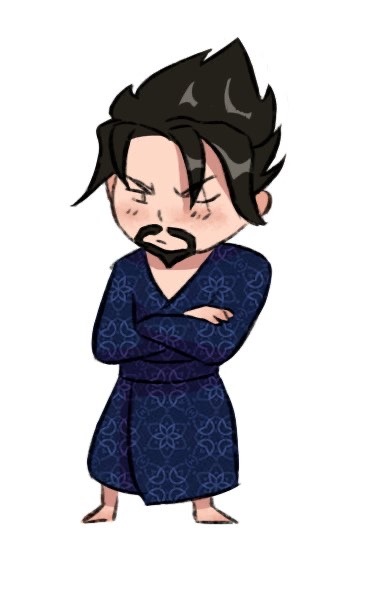


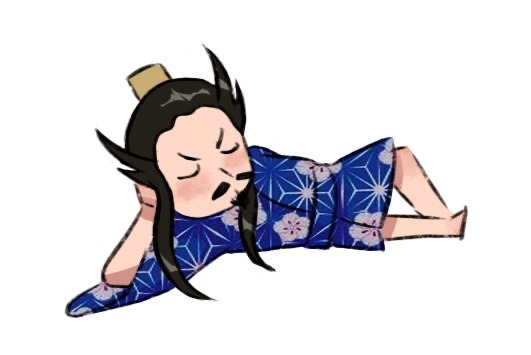
Guys look at the babies I made 🫠
#dynasty warriors#koei tecmo#rpg#strategy#warriors orochi#the romance of the three kingdoms#xiahou dun#Cao Cao#sengoku musou#musou#Zhang Liao#Yu Jin#Wei
53 notes
·
View notes
Text

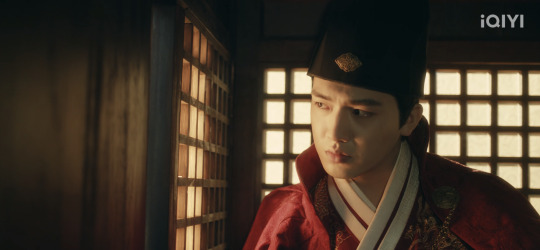
first post! gonna start things off with 2 sad boi
#jin wei#wang zhi#the blood of sleuth#the sleuth of ming dynasty#tsomd#the blood of youth#sngx#my screenshots#eunuchs
3 notes
·
View notes
Text
I'm sorry, Li Dian and everyone 🙏🏼 🙏🏼
#dynasty warrior 9#dynasty warriors#memes#banana cat#shinsangokumusou#wei#li dian#yue jin#zhang liao#meme
3 notes
·
View notes
Text
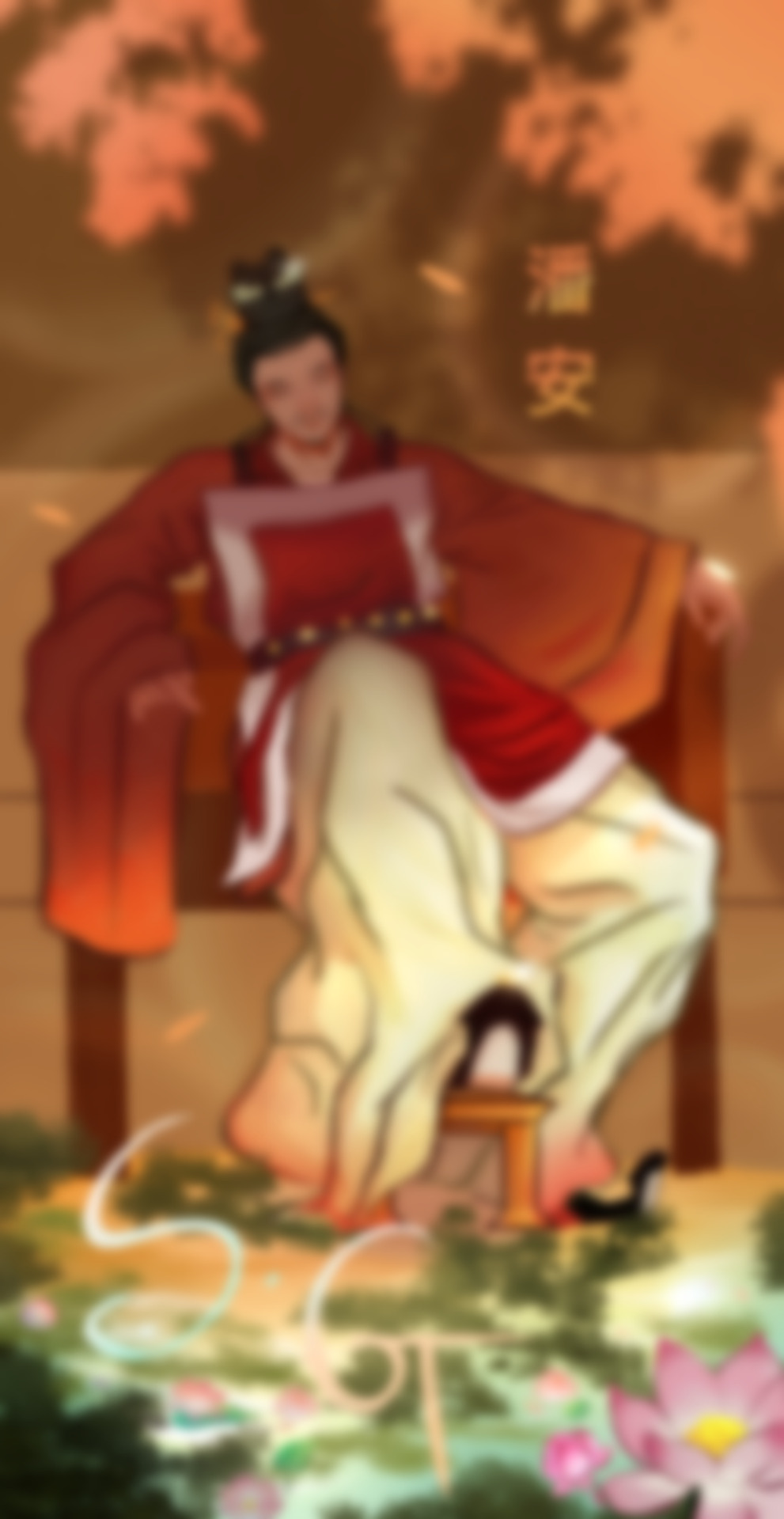
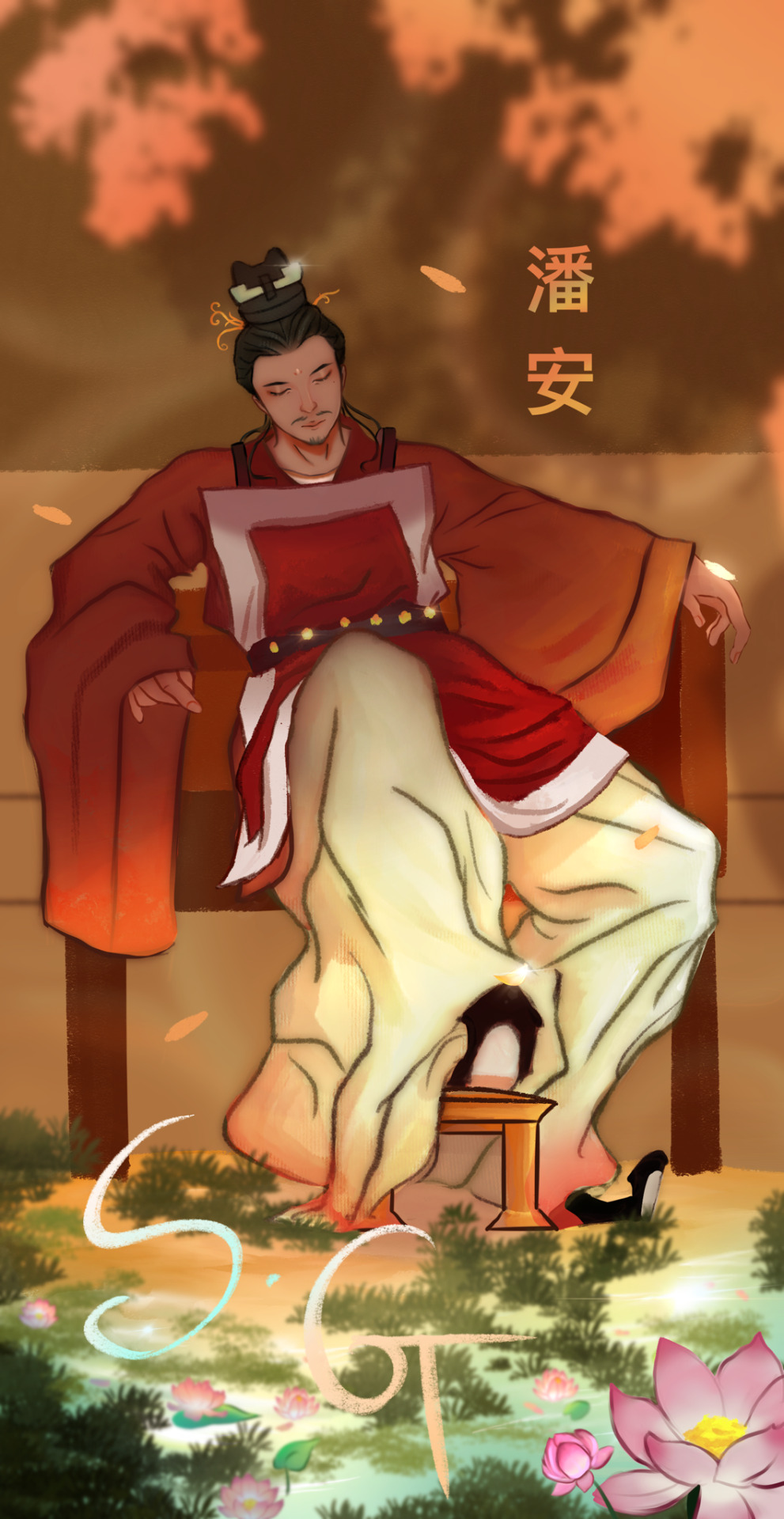
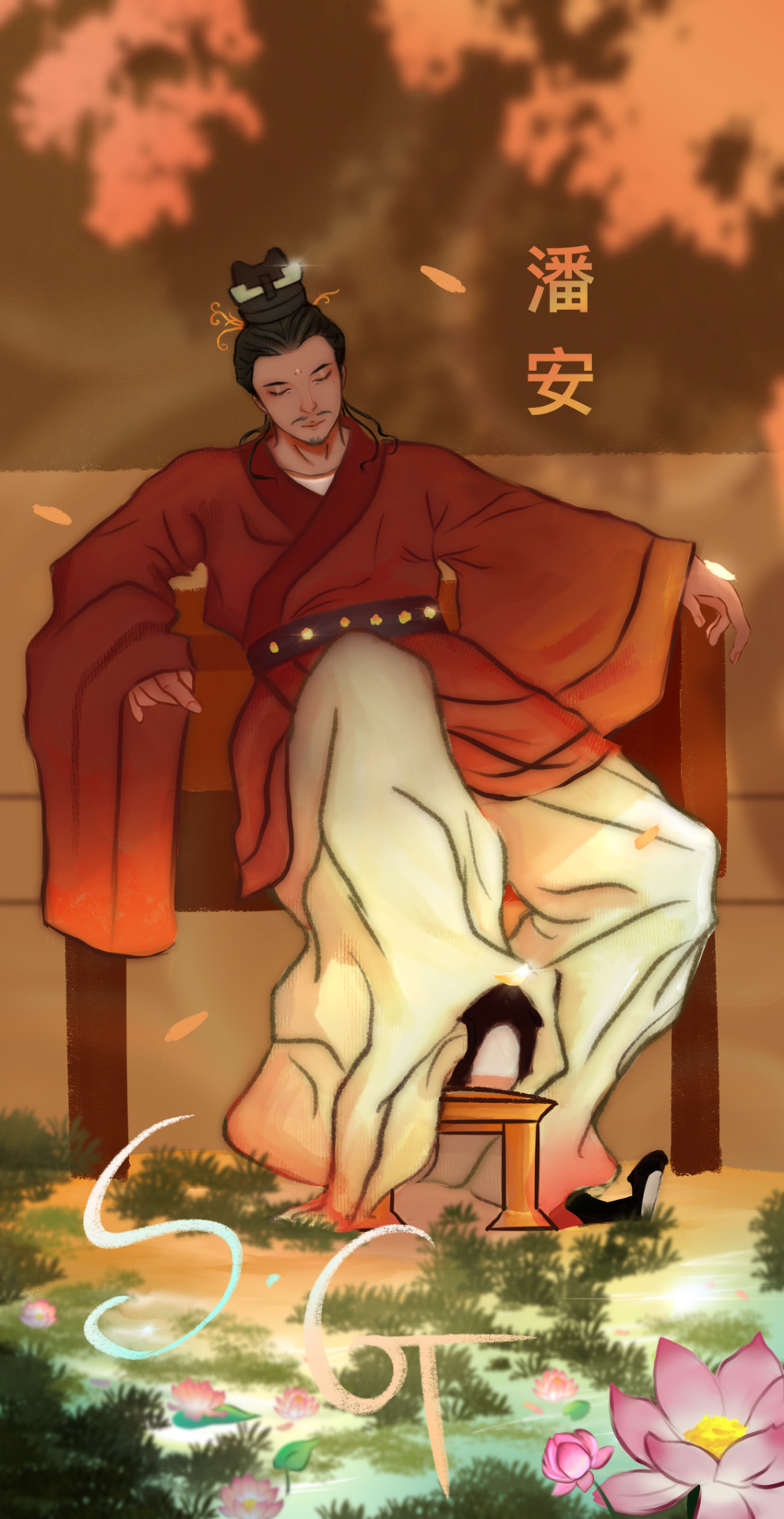
Pan An
Pan Yue (Chinese: 潘岳; 247–300), courtesy name "Anren" (安仁), was a prominent Chinese fu poet in the Western Jin dynasty. He is popularly referred to as Pan An (潘安) and was well known for his good looks from a young age. "Pan An" has become the Chinese byword for handsome men
40 notes
·
View notes
Text
The Collapse of the Han Dynasty and 350 Years of Disunity
The Collapse of the Han Dynasty and 350 Years of Disunity
Episode 20: The Age of Disunity
Foundations of Eastern Civilization
Dr Craig Benjamin (2013)
Film Review
According to Benjamin, the last decades of the Han Dynasty were characterized by corruption and infighting between the three groups of competing elites: the emperor’s eunuchs, the hereditary nobility and the Confucian bureaucrats. Simultaneously there was also substantial peasant unrest, most…
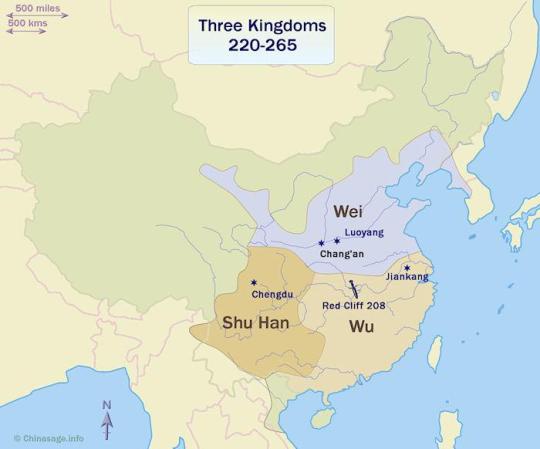
View On WordPress
#Buddhism#cao cao#cao pi#collapse of han dynasty#eunuchs#grand canal#jin dynasty#manchuria#shaanxi#shu#sui dynasty#wei#wendi#wu#xiongnu#yangdi#yellow turban rebellion
4 notes
·
View notes
Text
thus wu falls into corruption and treachery; again history repeats itself

#for those unaware this is quite literally exactly what cao pi did to emperor xian#and similar to what dong zhuo did to emperor xian as well#anyway wu is no longer a powerful state so at this point its almost certain wei under the sima clan will become the jin dynasty#theres a chance shu will get it but considering their goal of restoring the hans i doubt theyd call themselves jin
0 notes
Text
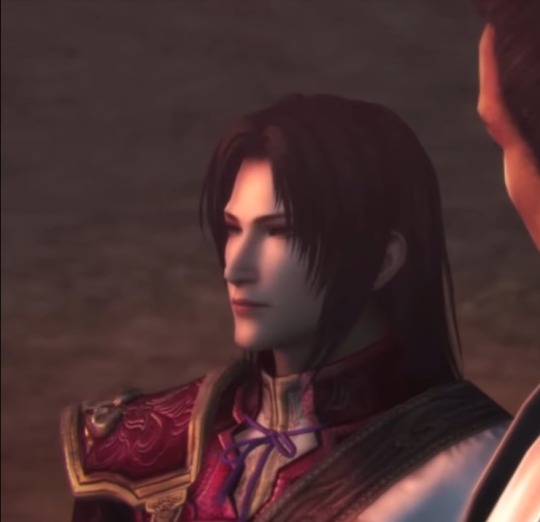
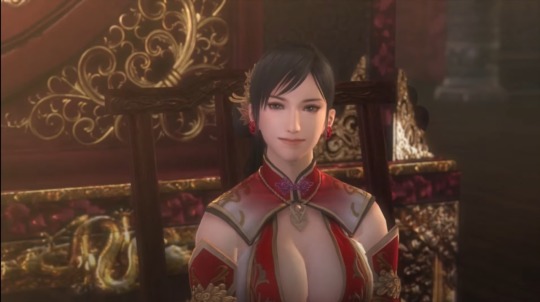
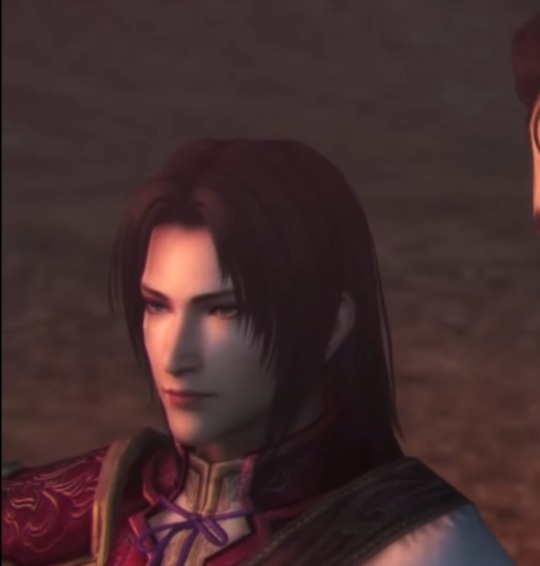
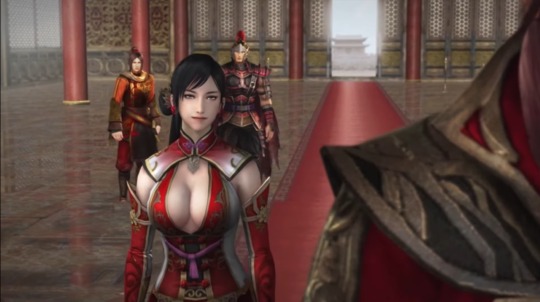
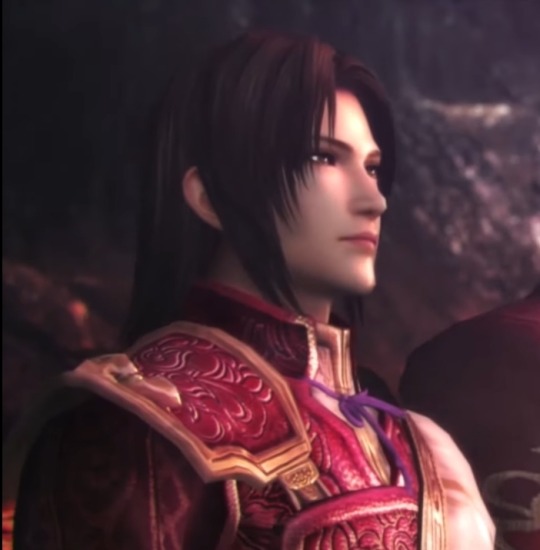
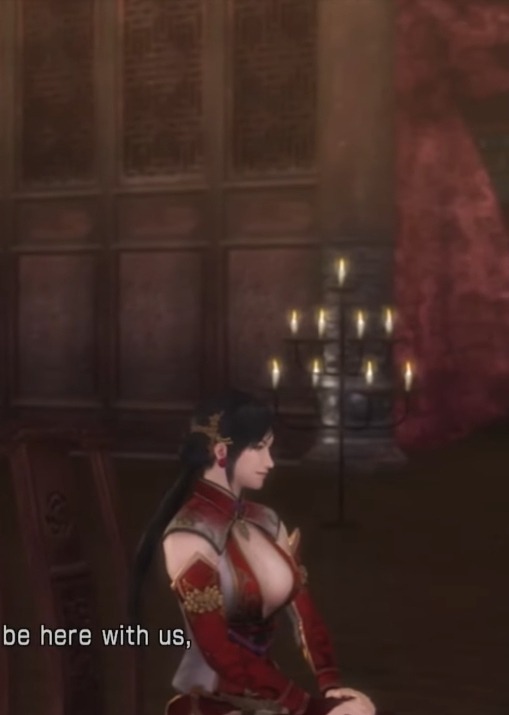
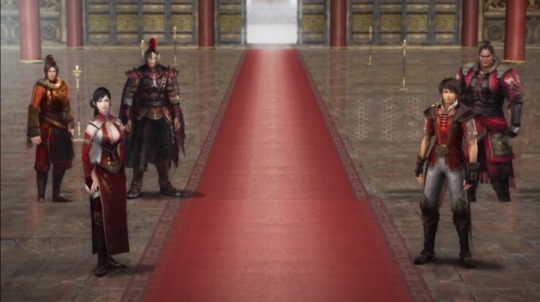


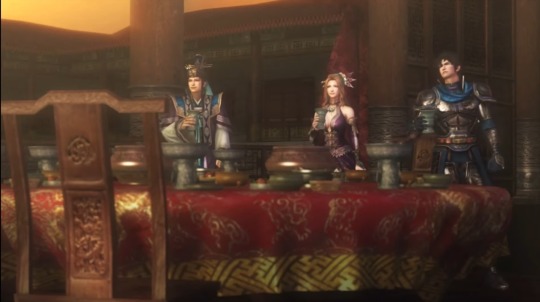
#koei#dynasty warriors#wu#wei#jin#phoenix#tiger#qilin#blue#red#ice#fire#lianshi#zhou yu#lidian#sima yi#zhangchunhua
0 notes
Text
[Hanfu・漢服]Chinese Wei & Jin Dynasties-Northern and Southern Dynasties Traditional Hanfu Based On Relics
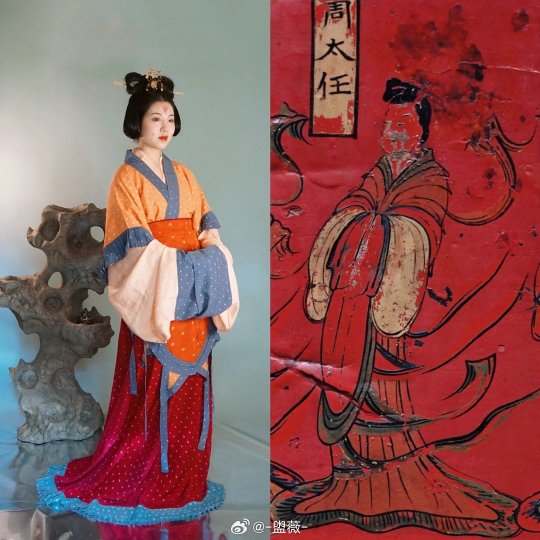
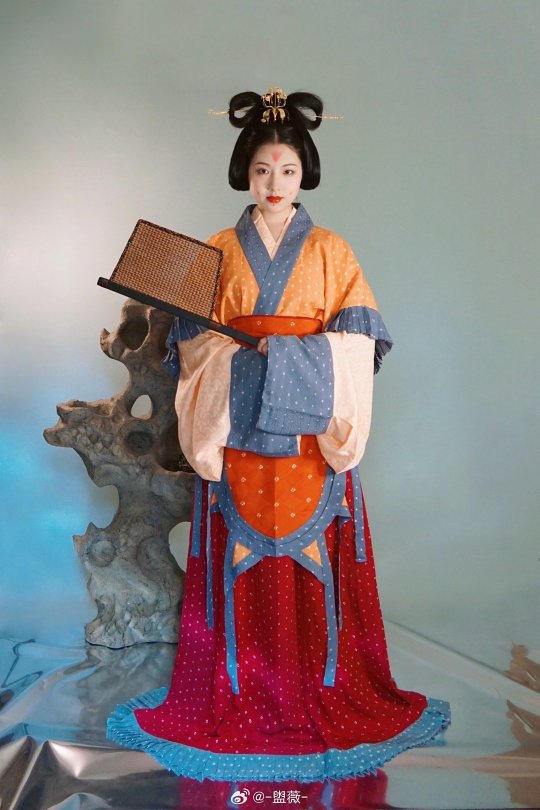
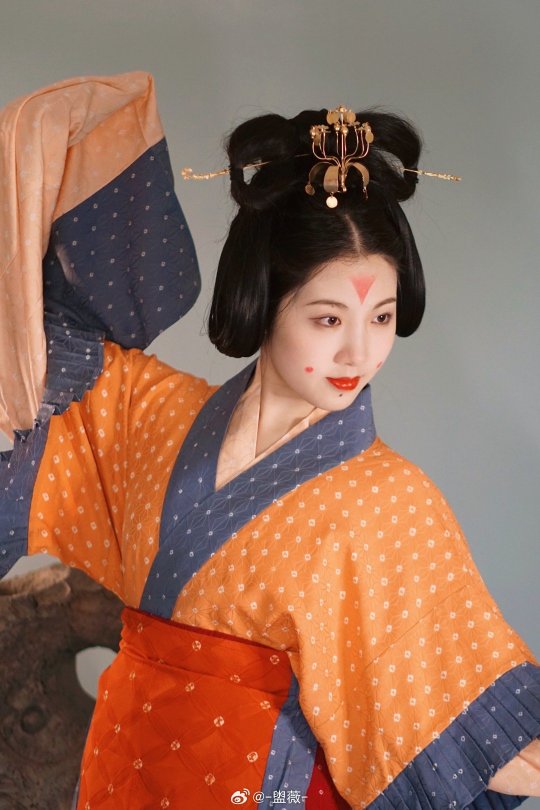
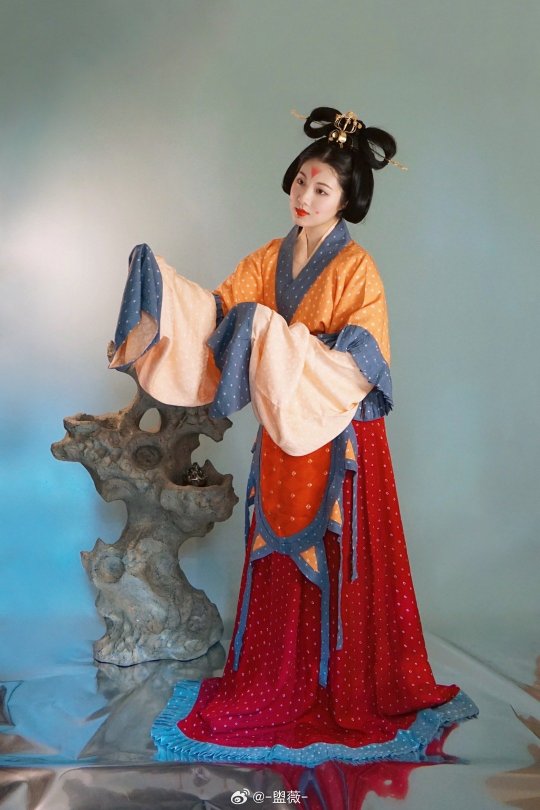
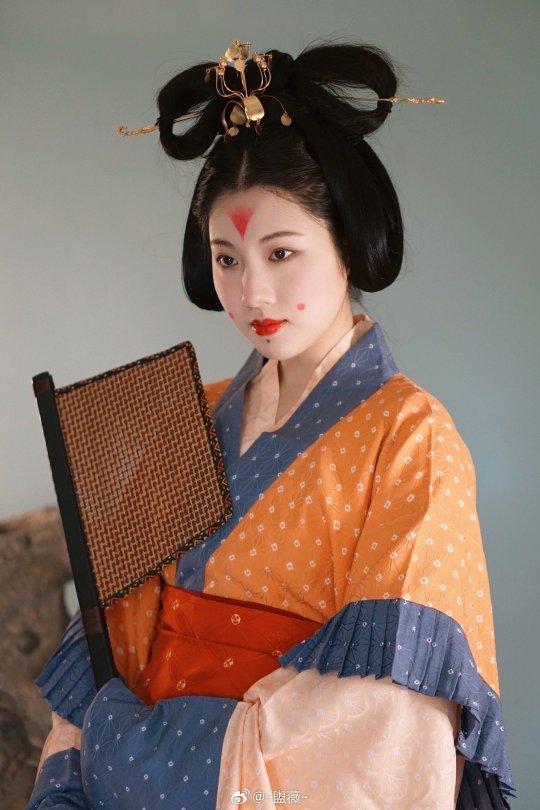
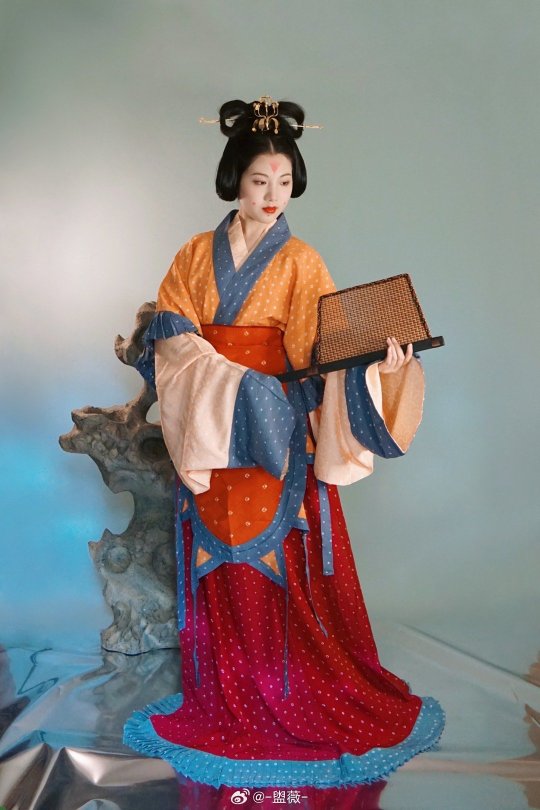
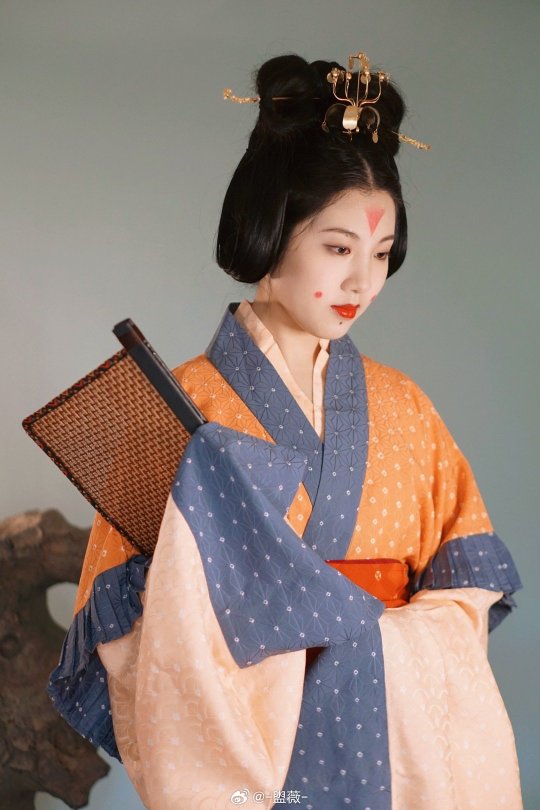
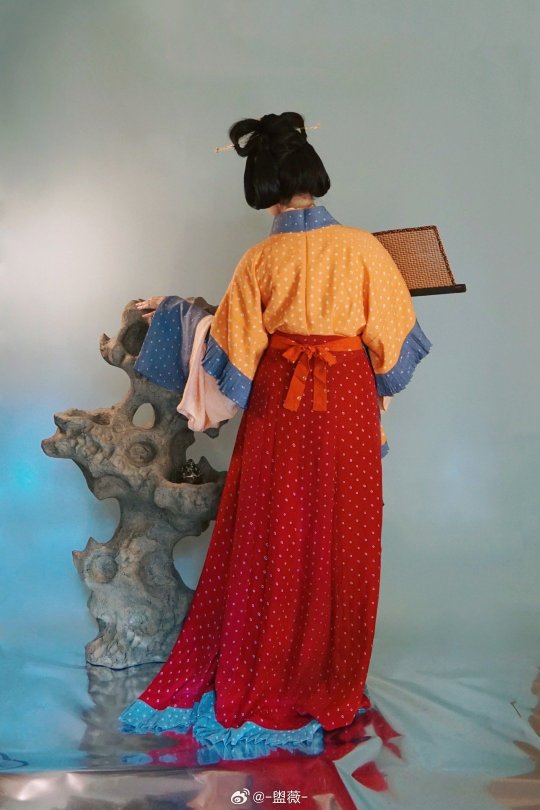
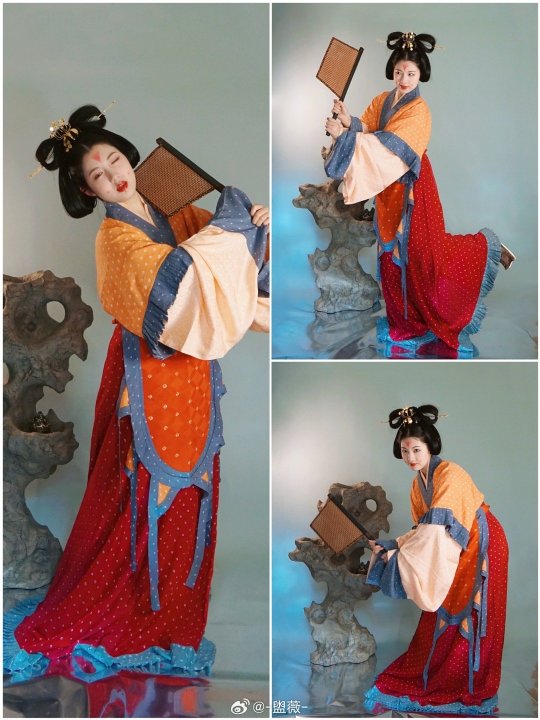
【Historical Reference Artifacts】:
Northern Wei Dynasty
<Lacquer Screen with Paintings of Colored Figures>
Unearthed from the tomb of Sima Jinlong (司馬金龍:Descendants of the Sima clan of the Jin Dynasty),Datong Museum, Datong, Shanxi, China.
It mainly depicts the stories of Emperor Shun(舜)'s observance of filial piety, the three mothers of the Zhou dynasty royal family, 鲁师春姜(Lu Shichunjiang married off his daughter and sent her to her husband's family three times, but was driven back to her parents' home three times), and 班姬辞辇. The story comes from "Biographies of Exemplary Women/列女传". "Biographies of Exemplary Women" is a book introducing the behavior of women in ancient China.
※鲁师春姜:When Lu Shichunjiang married off his daughter, he sent his daughter to her husband's family three times, and was driven back to her parents' home three times because her daughter often looked down on and insulted people in her husband's family.
※班姬辞辇:In order to be inseparable from Ban Jieyu(班婕妤) at all times, Emperor Cheng of the Han Dynasty specially ordered someone to build a larger chariot. However, when Emperor Cheng ordered her to travel with the chariot together, this was a great thing that the palace maids dreamed of, but unexpectedly, Ban Jieyu rejected.She tactfully said to Emperor Cheng: "Appreciating the paintings left in ancient times, a good kings are always accompanied by ministers, and only the kings of subjugated countries sit with their beloved concubines. If you want me to go in and out with you today, aren't you the same as the king who subjugated his country?”
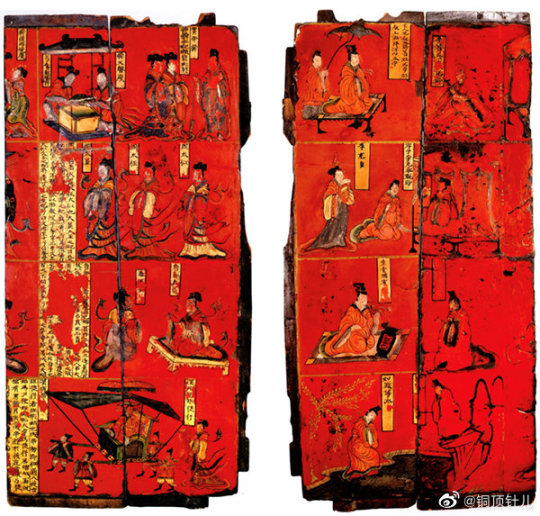
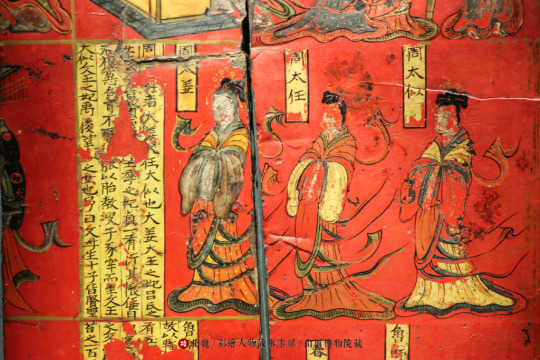
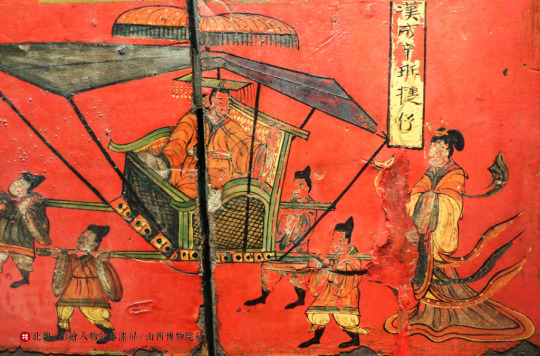
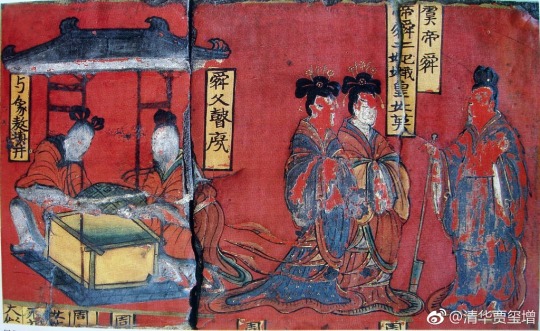
————————
📸Recreation Work &🧚🏻 Model :@-盥薇-
💎hairpin:@松花酿酒首饰铺
🔗 Weibo:https://weibo.com/3942003133/NuvvKrUKG
————————
#chinese hanfu#Wei & Jin Dynasties-Northern and Southern Dynasties#hanfu#hanfu accessories#hanfu_challenge#chinese traditional clothing#chinese#china
121 notes
·
View notes
Text
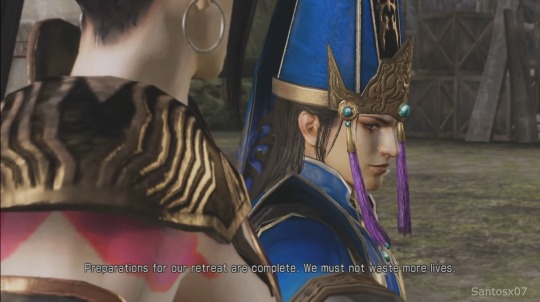
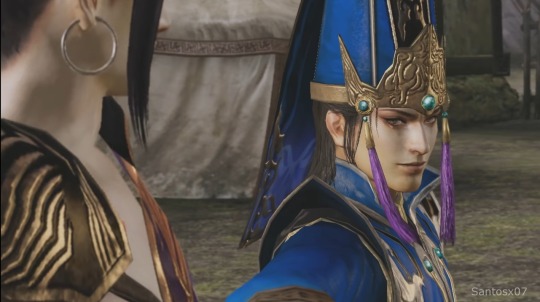



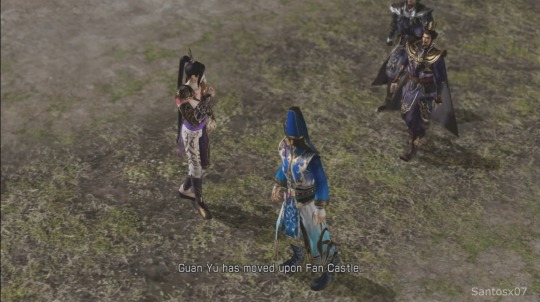
0 notes
Text
Dead languages and maybe Wei Ying is long-lost royalty
Today I had a discussion with @pakhnokh regarding why Wei Wuxian didn’t know the deeper layer of meaning behind the Lan forehead band. It was a long discussion on Twitter, so I figured I should just make a post here and leave this information out for anyone who might find it useful.
To start off: The reason why Wei Ying didn't know the deeper layer of meaning of the Lan forehead band was in the book. But it was written in a very opaque way, in one single throw-away line. In the book, when Wei Ying had to copy the Lan rules, he specifically complained that the rules were written in seal script.
The Useless Ye Olde’ Script
Seal script is a script that predated traditional Mandarin. It was infamous for being needlessly complex and having dozens, if not hundreds different dialects and writing methods. Some forms of seal script were entirely different languages altogether. When Qin Shi Huang united ancient China, he burned a lot of books and forced people to adopt a standard way to write, thus cementing traditional Mandarin as a singular language that is still used today, 2000 years after. A way to visualize how complex seal script was, is that there were 22 different ways to write the word 'sword'.

That is how mind-bogglingly complex it was. And worse, it was the source of much conflict in ancient times. To explain it simply, it was supposed to be one language. But if people could not even agree on how to write the same word, then how could they agree on more important things and cease warring against each other?
Language standardization was one of Qin Shi Huang’s greatest achievements, if not the greatest, as it laid the foundation for more peace and eventual unification in later dynasties.
This topic was made into an Academy Award-nominated movie, Hero by Zhang Yimou in 2002.

(the word ‘sword’ that Qin Shi Huang decided on, thus wiping out the other 20+ ways to write the same word)
Dating Mo Dao Zu Shi in real history (or, Wei Ying might actually be long-lost royalty)
In a very interesting turn of events, MXTX has confirmed in her latest interview in Subaru magazine, that the events of MDZS happened during Wei Jin, Southern and Northern Dynasties (commonly referred to as the Six Dynasties era by English-speaking historians, even though these two don’t perfectly line up).
Yes, the same Wei 魏 in Wei Ying 魏婴, Wei Wuxian 魏无羡.
So the events in MDZS took place in the era immediately after the fall of the Qin dynasty (caused by Qin Shi Huang’s death and his sons not being able to measure up). Therefore, Wei Ying’s generation is in a time after the language has standardized into a single form.
The Lan rules, at least the first set and the meaning of the forehead band, were written about 500 years before Wei Ying’s generation, at the founding of House Lan. So that would put it squarely in the pre-Qin, pre-lingual-standardization era.
So by Wei Ying’s time, the Lan rules were essentially written in a dead, kinda useless, and very very hard-to-read-because-it-has-some-hundred-different-dialect language.
That’s on top of the fact that it was probably written in the highest level of 书面语 shumianyu (written language) possible. I.e. extremely condensed and truncated (with zero punctuation).
So the Lan rules are more or less a very thick law book of a different nation written in the strictest, most condensed dead language that is in no way, shape, or form still in practical use for Wei Ying (and most other people not Lan). Do you feel like reading it? I don’t.
And that is why Wei Ying never figured out the original meaning of the forehead band despite having copied the rules hundreds of times (first day in class, he was already punished and sentenced to copying the rules 100 times by Lan Qiren).
Because he was just copying the words without really reading them. This was mentioned when Wei Ying asked Lan Wangji the meaning of the Lan forehead band, and Lan Wangji replied with, you have copied the rules so many times and you still don’t know?
But isn’t Wei Ying really well-read and smart, and what about the Wen book?
1/ Wei Ying is smart and well-read. There was one throw-away line in the book that mentioned his having read all the books available to him in Lotus Pier, and that he had read all kinds of trivia (including the Thousand Sores and Hundred Holes curse that got put on Jin Zixun). But it was also stated that he favored practical things or things that interested him. Lan rules in dead, extremely hard to read language are… well… yeah…
There was never any mention in canon where he remembered specific Lan rules unless it was literally beaten into him by teenage Lan Wangji.
2/ In the novel, the Lan rules are singled out as the only materials written in seal script. The Wen books were standard issued to everyone who took part in the Wen education camp. So the chance that it was written in seal script is low to none.
Wei Ying is not the only person who doesn’t know the meaning of the Lan forehead band
Jiang Cheng didn't know either. Jin Ling didn't know either. During the Wen archery competition, when Wei Ying pulled off Lan Wangji's forehead band, he did ask Jiang Cheng what the hell was that, when Lan Wangji and other Lan members reacted like he did something shameful. Jiang Cheng replied with, how the hell would I know? Their house has so many rules. Just stop poking them.
Jin Ling didn't know until the other Lan teenagers told him. The only characters who know this in canon are all members of Lan house. The impression that Wei Ying is the only one who doesn't know is 100 percent fanon. Keep in mind both Jiang Cheng and Jin Ling are clan heirs, so their education and knowledge of other houses absolutely are not low.
In fact, the novel specifically shows that.....the rest of the cultivation world is not that clear on the actual specifics of Lan rules either. This is shown when Jin Zixun pressured Lan Xichen and Lan Wangji into drinking wine, a clear violation of Lan rules, and the rest of the cultivators in the banquet cheered him on.
These cultivators were also heads of Houses or very high-ranking members. Many of them would have studied in Cloud Recess. So again, people who have high education… still know shit all about the actual specifics of Lan rules beyond a vague, general monk-like impression.
About the only other person aside from Wei Ying (and Lan members) who knew the specific rule that Lans do not drink in that banquet was Jin Guangyao, a character whose trademark is high intelligence and extreme social savvy (plus having roomed with Lan Xichen and taken care of him for unknown amount of time right before the Sunshot campaign)
Are there secret parts of the Lan rules?
No. The Lan rules are public. The book is very clear on this. All Lan rules are carved into a massive stone placed at the foot of the mountain where Cloud Recess is, where anyone passing through or coming into House Lan can see it.
This rule stone was first mentioned when Lan Wangji and Wei Wuxian met for the first time. Wei Ying complained that he didn’t know the rules and why are there so many things forbidden in the Lan rules? Lan Wangji replied with, rules are written on the stone. Go read it yourself.
The second time it was mentioned in the book, was Lan Qiren’s first class. The first thing he did was complained that even with the stone and rules being in open space, nobody bothered to read. So he will read the rules now.
The book mentioned at least two different sets of Lan rules that both need to be obeyed: 礼则篇 Lize Pian (Book of Rites) 上义篇 Shang Yi Pian (Book of Justice). Whether the rules are separated further into more sets or not is unknown.
Why are some Lan rules better known than others?
Because Lan rules are based on 克己復禮 Keji Fuli, a real-life Confucius asceticism that calls for the restraint/purge of one’s ego and to return to the core rites. This is also newly confirmed in MXTX’s new interview, though it has been more or less heavily suggested in the book itself, with House Lan being known as the House of Gentlemen.
Gentlemen here is not the Western ideal of Gentlemen, but rather a Confucius ideal and set of values. Confucius is the person who created this ideal in the first place.
So it’s not that some rules are better known, but rather the entire image of Lan House is a huge pointer as to how they live their life: with great restraint.
648 notes
·
View notes
Text
On Life debts in MDZS
Recently finished watching Anle Zhuan, and holy crap, it really just sets even more into perspective how important life debts were in Chinese culture, especially in the days of dynasties. Long story short, the FL has a filial obligation to clear her family's name and exact vengeance on the ML's family - but you know what throws a wrench in her plans? The fact that the ML keeps saving her. Of course, this is a moral dilemma more easily offset by how she keeps saving him as well, but the fact that this is even worth mentioning and considered a serious quandary by the main character and her allies at one point really says something. And it got me thinking deeper about the implications of such life debts in MDZS.
In MDZS, life debts are immeasurably important. And how you honour that life debt is a measure of your character. When you owe someone a life debt, you owe them something immeasurably precious. In MDZS, MXTX knows that and shows it. She uses life debts to tie characters together and to drive the plot.
Life debts are the reason Wei Wuxian feels so duty-bound to the Jiang Sect and the Jiang family. They're the reason he's willing to lose an arm if it means no damage comes to his sect. They're the reason he tolerates being punished with methods beyond what's ever acceptable for a Head Disciple of a Sect. Because Jiang Fengmian saved him from living a life on the streets all those years ago, never mind that JFM himself owed Wei Wuxian's mother a life debt.
Life debts are the reason Wen Zhuliu is so blindly loyal to Wen Ruohan, committing countless atrocities in the name of the man who saved his life.
Life debts (and perhaps also genuine love), are why Jin Guangyao is so loyal to Lan Xichen. Because despite every other moral he eschews in his pursuit of power, he will always remember the sincere kindness Lan Xichen showed him when every other cultivator judged him for his heritage. And in the same way, we see Lan Xichen protecting him from Nie Mingjue under the excuse that Lan Xichen owes his life to Jin Guangyao.
Now let's talk about when life debts come into conflict with "filial duty".
It always irks me when people bring up family and filial duty to criticize WWX's "betrayal" of his sect, or try to undermine his judgement and actions when he protected the Wen Remnants. To me, it just shows a fundamental misunderstanding of the novel and the context around the text. When people call Wei Wuxian a "troublemaker" for leaving the Jiang Sect, they're falling prey to the very prejudices and classism MXTX condemned in the novel. Yes, the Wens burned down Lotus Pier. Yes, the remaining Jiang Sect would've had an obligation to go to war and exterminate the Wens. But you know what brings this duty to avenge your sect to question - in almost every way you look at it? When someone who never even participated in the bloodshed saves your life.
So, if we want to talk about filial duty and reciprocation - Jiang Cheng - and by extension, his sect, owes Wen Qing and Wen Ning a massive life debt (and that's not even considering the GC transfer). Even if we ignore the cultural context regarding debts, that's huge. Let's take a step back and look at what Wei Wuxian and Jiang Cheng owe the Wens.
The initial life debt. Wen Ning saves Jiang Cheng directly from probable execution (like his parents), as well as hides Wei Wuxian and Jiang Cheng from the Wen soldiers in his own room. In doing this, Wen Ning has already crossed the line of treason towards his own sect. Keep in mind - Wen Ruohan is his uncle. And here he is, risking his life to save two boys - only one of whom he's actually had any meaningful interaction with.
The days after. Both Wei Wuxian and Jiang Cheng are heavily wounded, the former from his whipping via Zidian + wounds sustained during the battle, the latter from Wen Chao's torture. In the days following, Wen Qing nurses both Jiang Cheng and Wei Wuxian - enemies of her clan - back to health.
The debt Jiang Cheng owes further. People need a proper send-off in order to ensure their passage to Diyu, or the Underworld - and that could only be done for JFM and YZY because WN risked his life even further to bring back the personal items (and in some adaptations, their bodies) of Jiang Cheng's parents. In simple terms, Jiang Cheng wouldn't even have Zidian if not for Wen Ning.
The golden core transfer. There are two separate components to this. The first is limited - from Jiang Cheng's perspective.
Here's what JC knows: 1. He has no core, but there is a chance he can have his core restored by Baoshan Sanren. 2. The only way Baoshan Sanren would ever agree to this is if he impersonated Wei Wuxian, the son of her beloved disciple. 3. Jiang Cheng is a sect heir; he grew up wealthy, in relative comfort. He's at the top of the food chain. Wei Wuxian, on the other hand, is an orphan. He grew up being demeaned for his heritage. In truth, he inherited nothing from his parents. But what Jiang Cheng knows is that Wei Wuxian did have an inheritance: one precious thing, the location of an immortal. And then he gives that favour-his entire inheritance-to Jiang Cheng. Wei Wuxian, at this moment, essentially hands over everything he has left of his dead parents (who Madam Yu has slandered for his entire life) to Jiang Cheng.
From Wei Wuxian's perspective, the debt is this: his close friend and heir to the Jiang Clan has no core. He believes that Jiang Cheng needs his core - as he's been displaying suicidal tendencies after losing his. However, Wen Qing has a theoretical thesis on golden core transfers. This surgery has a 50% chance of success. To the knowledge of everyone involved, Jiang Cheng consented to getting his core back by whatever means necessary. He explicitly never questioned how Baoshan Sanren would restore his golden core. Anonymous organ donors are known to be a thing, even by modern medical standards. And WWX stays awake for two nights and a day without any anesthesia as Wen Qing cuts into his body and takes something he has spent over half of his lifetime cultivating, to give to Jiang Cheng.
"He had to be awake. He had to watch the golden core connected to his spiritual pathways be peeled from his body. He had to feel the gradual suppression, sedation, settlement of his originally surging spiritual powers, all until they became a pool of dead water, unable to rise ever again."
There's definitely also a case to make about Jiang Cheng essentially sacrificing himself to lead the guards away from Wei Wuxian, but you could also argue that Wei Wuxian saved his life just a chapter earlier by dragging him away from Lotus Pier when he returned. Also, it's got nothing to do with the Wen Sibs, towards whom they both owe debts.
By this time, Wen Qing and Wen Ning have already gone above and beyond to help the Jiangs and WWX. Saving the life of the sect heir is one thing, but to perform a never-before-done borderline heretical act of surgery to restore the heir's golden core? Another thing entirely.
The moral obligation of the Jiangs and Wei Wuxian to avenge their sect by killing the Wens does come into conflict with the debts they owe the Wen siblings. But compared to slaughtering Wen Chao, and the Wen soldiers during the Sun, how far does honouring filial duty by exacting vengeance on the Wen Sect go? Wen Qing herself declares she and her brother separate from Wen Ruohan. They're healers. They don't take lives.
From every depiction in Chinese media and culture, life debts are not to be taken lightly. A life debt is meant to be honoured and repaid. It's not something any half-decent person would mention maybe briefly in a Discussion Conference and then immediately shut up about and never mention again when someone louder (*cough*NMJ) speaks up. By turning his back on Wen Qing and Wen Ning, Jiang Cheng had demonstrated a significant moral failure as well as a misunderstanding of his own sect's motto. Along with his personal reasons, Wei Wuxian has every reason to protect the Wen Remnants.
So why, people ask, is Wei Wuxian so hellbent on protecting Wen Ning, Wen Qing, and the rest of the Wen Remnants? The easiest answer: he's a good person. He's compassionate, kind-hearted, empathetic to a fault; he isn't the type of person to stand by and watch if innocents and the helpless starve or suffer. He saw and recognized that what the Jins were doing to the prisoners of war was wrong, and chose to interfere. The other answer? He owes them a debt. He owes Wen Qing and Wen Ning a debt the rest of the Jiangs don't even know about. You want to discuss it in simple terms? Wen Ning is the only reason the Jiang Sect still stands. Wen Qing is the only reason the Jiang Sect has a cultivator for a leader by the end of MDZS. She committed the equivalence of cultivation heresy to save Jiang Cheng because Wei Wuxian begged her. WWX defending her family in return is…. Really the least he could do.
I've seen people calling the Wen Remnants war criminals, even equating them to the mafia, and I can't help but think - what book were those people even reading? if you're not willing to consider the culture and values or just use basic critical thinking when consuming a piece of media - don't try to slander the actions of its characters. Anyone who read the novel and understood the intended themes would not, in good faith, condemn Wei Wuxian's decision to protect the Wen Remnants.
337 notes
·
View notes
Text
Omg I tried to use ai for making these handsome guys look realistic 👀
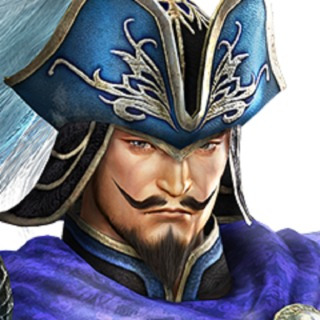

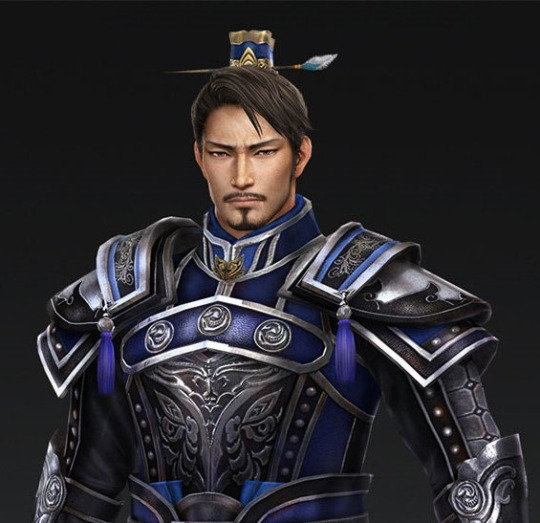
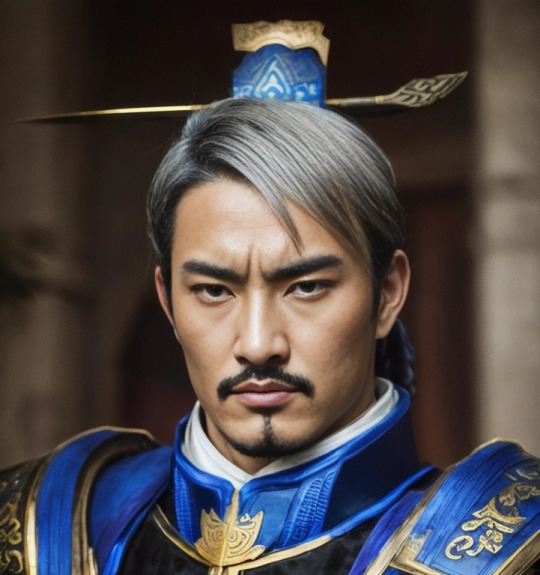
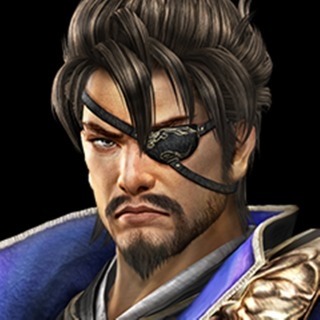
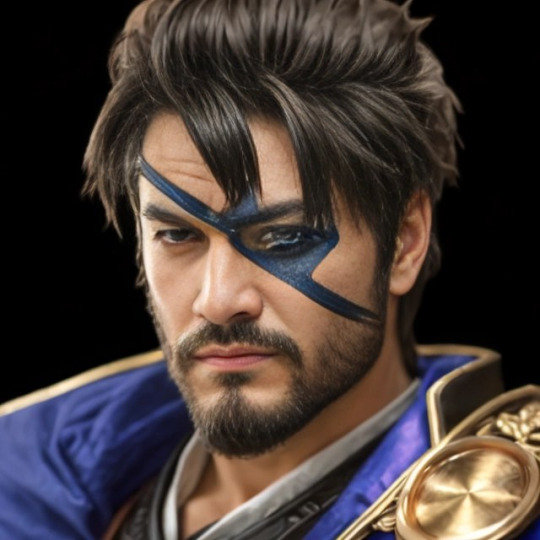
*faints* Xiahou Dun is so good
#dynasty warriors#warriors orochi#koei tecmo#the romance of the three kingdoms#sengoku musou#musou#Zhang Liao#xiahou dun#Yu Jin#Wei#strategy#rpg#ai generated
9 notes
·
View notes